








Airlines, Airports and Airliners News 15 to 21 Feb 2021 FLYSAFAIR LAUNCHES NEW MOBILE APP, AS AIRLINES FACE RECOVERY  "We've been crafting an app for a while and now seemed like a great time to launch it because we were able to make a lot of adjustments to the features to ensure that they were relevant in this COVID-19 reality", says Kirby Gordon, Chief Marketing Officer at FlySafair. Aviation is South Africa took another massive knock after the announcement of level 3 restrictions in late December last year, with available seats on the market in January this year being a mere 45% of what they were in January 2020. Competition for limited customers is fierce and it's now more important than ever that airlines look to differentiate themselves to win over market share. "The aim of the app has been to make our customer's experience with us simpler, by centralising all booking details into one place. What's great about this is that customers can manage a great deal of their journey on their own devices. Boarding passes are kept on the device which supports our No Touch approach at the airport and live updates through the app will keep customers abreast of any possible schedule changes". The new FlySafair App is available for download, free of charge, in both the Apple App Store for iPhones, and the Google Play Store for Android devices. While the app provides functionality to assist customers during their travel process, it's also a platform to purchase new flights. "Users create a profile on the app which allows them to save the details for regular travellers and even remember their payment details, making booking really simple". FlySafair has also communicated that special offers will be promoted through the app only. "We're looking forward to running a couple of promotions and deals that will be exclusively available through our app in the near future". AIRLINK RESUMED SISHEN FLIGHTS ON 15 FEBRUARY 2021, CANCELS EASTER SEASON FLIGHTS TO NOSY BE AND LAUNCHES NEW WEST- COAST ROUTE CONNECTING CAPE TOWN WITH WALVIS BAY 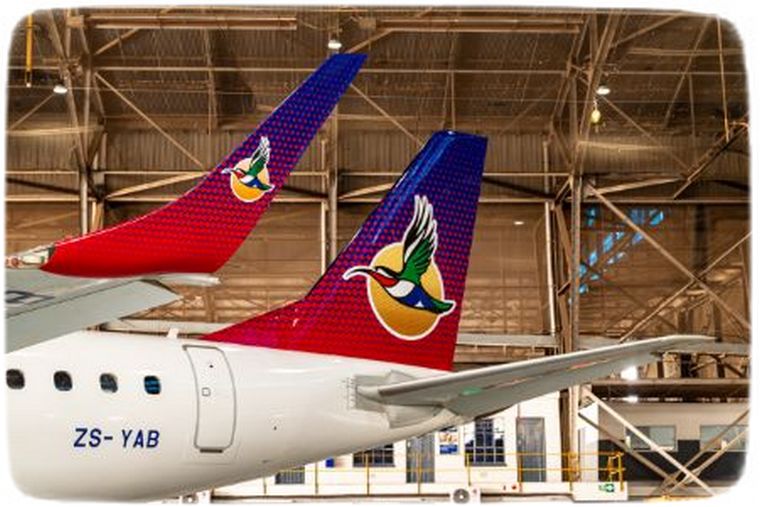 The route was relaunched to provide vital air connectivity to the crucial iron ore mining centre. "Airlink recognises the strategically important role that Sishen plays in our economy both as a mining town and sustaining jobs in the Northern Cape province, but also in generating valuable foreign revenue for South Africa through exports of iron ore. We look forward to resuming our role in supporting Sishen and its community. We will commence with four return flights a week and we will add frequencies as demand on the route picks up," said Airlink CEO and Managing Director, Rodger Foster. Airlink, the privately-owned regional airline, regrets to announce the further suspension of its service between Johannesburg and Nosy Be, Madagascar, up until 27 June 2021. "We regret the impact this will have for those customers already holding confirmed bookings for the April Easter holidays. Unfortunately, despite multiple efforts from the lodges on Nosy Be, the Nosy Be Tourism Authority and Ravinala Airports, we have to date been unable to obtain certainty as to when Madagascar intends to reopen its borders for regional travel. Accordingly, this leaves us with no option but to cancel our planned flights on the route in the interim. Customers holding tickets will be able to rebook on a future flight at no additional cost," said Airlink Managing Director and CEO, Rodger Foster. "From the multiple engagements we have had with the Malagasy authorities, we are hopeful that the borders will re-open in time for Airlink to resume services for the June/July peak South African holiday season, followed by the August - October period which coincides with the return of the whale sharks to the island which is an exciting feature of any visit to the island." he added. The Cape Town - Walvis Bay new route is Airlink's fourth between South Africa and Namibia, with other services linking Cape Town and Windhoek in addition to flights from Johannesburg to Windhoek and Walvis Bay. "This new service is ideal for business and leisure travellers with the port city of Walvis Bay being an important economic hub and gateway to some of Namibia's prized tourist destinations, including the Namib Dessert, Swakopmund and the Skeleton Coast. Walvis Bay, Langstrand and Swakopmund are also home to a significant community of people who commute between Namibia and South Africa," explained Airlink CEO, Rodger Foster. The route will also enable seamless multi-city travel itineraries for international and local tourists visiting popular destinations in Namibia and South Africa. 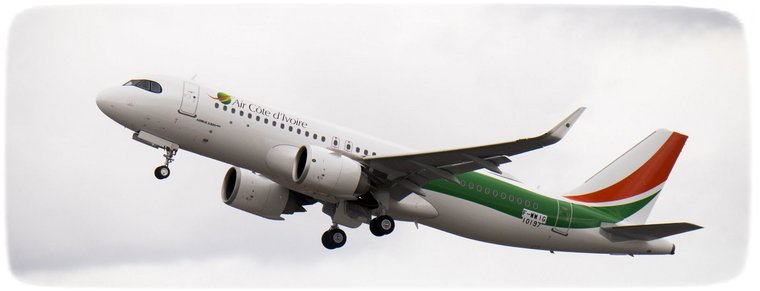 With improved levels of efficiency, this new aircraft will be deployed on Air Côte d'Ivoire's regional network to serve Senegal, Gabon, and Cameroon. Destinations like South Africa will be added at a later stage, highlighting the operational flexibility of the A320neo. Powered by CFM International LEAP-1A engines, the aircraft is configured in a comfortable two-class layout with 16 seats in Business and 132 seats in Economy Class. Passengers will benefit from the widest cabin of any single-aisle aircraft, high-speed Internet connectivity and latest generation in-flight entertainment system. Air Cote d'Ivoire's first A320neo took off from Toulouse carrying 1 tonne of humanitarian goods including medical equipment and toys. In partnership with Aviation sans Frontières and the Airbus Foundation, the mission is part of Air Côte d'Ivoire's corporate social responsibility initiative. The transported goods will serve local NGOs in Abidjan, thus supporting the education and health sector in the country. Air Cote d'Ivoire has a fleet of 10 aircraft, including three A319s and three A320s, serving 25 domestic and regional destinations in West and Central Africa. The A320neo Family incorporates the very latest technologies including new generation engines, Sharklets and aerodynamics, which together deliver 20% in fuel savings and CO2 reduction. The A320neo Family has won 7,450 orders from nearly 120 customers. WELCOME BACK! LUFTHANSA CREW RETURNS TO MUNICH FROM RECORD FLIGHT TO THE FALKLAND ISLANDS 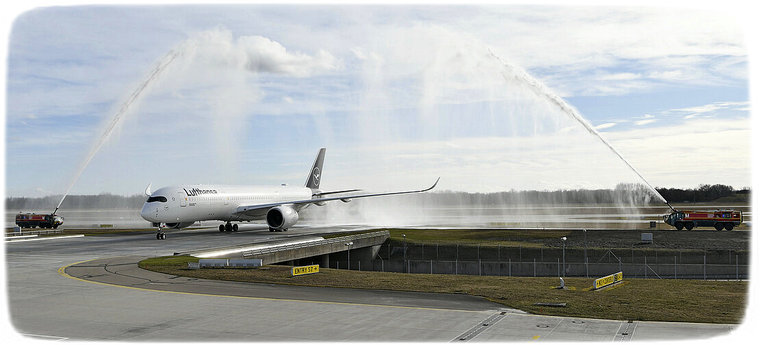 On Sunday, 31 January, the 16-member crew led by Flight Captain Rolf Uzat departed on the longest nonstop flight in the history of Lufthansa. The flight time from Hamburg to the Mount Pleasant military base on the Falkland Islands took exactly 15:26 hours for the 13,700-kilometer route. The return flight was another record-breaker: The Airbus A350-900 "Braun-schweig" completed the 13,400-kilometer route in 14:03 hours. In the history of Munich Airport, this was the first aircraft to ever land after operating such a long distance without having a stopover. On board the special flight were 40 passengers from the crew of the research vessel "Polarstern", who flew back home on behalf of the Alfred Wegener Institute, Helmholtz Centre for Polar and Marine Research (AWI) in Bremerhaven (Germany). Because the hygiene requirements for this flight were extremely strict, this round-trip will go down in the history of Lufthansa: The passengers and crew were required to quarantine for two weeks before this flight in a hotel in Bremerhaven. The entire duty trip took a total of 20 days for the crew; no other crew had recently completed more duty days coherently. KLM 2020 FULL YEAR RESULTS 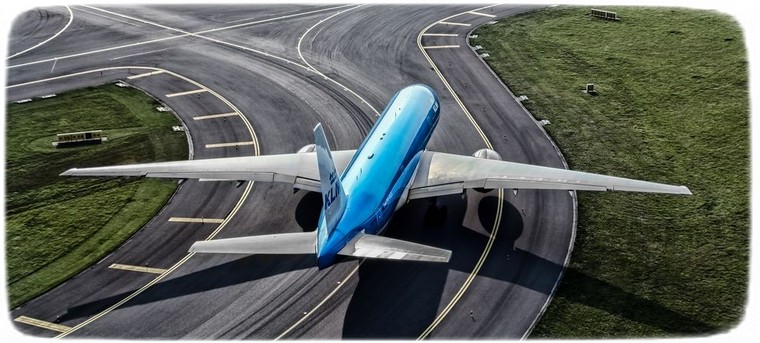 At the same time, we as KLM are proud that we were able to make an important contribution in 2020 by repatriating 250,000 Dutch people and fellow Europeans and by bringing so many essential medical supplies to the Netherlands with extra cargo flights. KLM's response to the COVID pandemic was a testament to our resilience, creativity and agility. The consequences of this pandemic are clearly visible in the 2020 figures. KLM's turnover fell by 54% to €5 billion. While our anniversary year saw a record 35 million customers, in 2020 only 11 million customers travelled with KLM. KLM's total operational result came in at a loss of €1.2 billion, despite the fact that the cargo division managed to improve its margins as a result of the strong increase in demand for cargo capacity. KLM's financial results show how serious the situation is. Thanks to the support of the Dutch government, KLM has been able to maintain its financial liquidity. I know that I speak for everyone at KLM when I say that we are very grateful to the government and, through it, to Dutch society. The KLM people, in turn, have made their contribution by agreeing to the far-reaching conditions of this financial lifeline from government and banks. The world of aviation will look very different for a longer period of time, with less traffic and pressure on revenues. This year has also started much less well than we had initially anticipated. Despite that, and looking to the second half of 2021, I sense cautious optimism and hope. People will start flying again and slowly but surely KLM will be able to fly the global network again with all the options available to its customers. KLM's ambition is not only to survive, but also to remain an important and responsible player in the airline industry after the crisis. To achieve this, a restructuring plan has been drawn up, called 'From More to Better'. The restructuring plan is agile, based on different market and recovery scenarios, and will allow us to be flexible and create opportunities in the areas of customer experience, digitalisation, sustainability and technology. With the help of our loyal customers and committed staff, KLM will weather this storm and get better, continuing to fulfil its important social and economic role for Dutch society. We will continue to pursue our ambitions and lead the way in sustainability and innovation. The Netherlands can continue to count on our full commitment and contribution when it comes to realising these ambitions. ITALY FIUMICINO AIRPORT VACCINATION CENTRE  Fiumicino airport is always at the forefront in the fight against Covid-19. In fact, the new Vaccination Centre in the Lazio Region has been up and running for a while, the first of its kind in an Italian airport, thanks to the collaboration between Rome Airports and the Italian Red Cross, using tools that are highly innovative. The Italian Red Cross will manage the inoculation of the vaccines with their health professionals. On the first day, 400 doses of the Astra-Zeneca vaccine will be administered to healthcare workers aged between 18 and 55. The 1,500 square metre facility, fully covered and heated, which will be able to administer up to 3,000 doses of vaccine a day when operating 24 hours a day, has been set up using part of the 22,000 square metres made available by Rome Airports at the "Leonardo da Vinci" long-stay car park, where the drive-in area for Covid-19 tests has been operating since last September, also managed by the Italian Red Cross. The vaccination centre will operate according to the guidelines to be established by the health authorities, with access by appointment only. As for the rapid testing centre, operating in the "Arrivals" area of Terminal 3 of Fiumicino airport and subsequently the launch of the largest "drive-in" centre for rapid and molecular tests in the Lazio region, this facility was also created thanks to the profitable collaboration with Lazio Region, USMAF, the Spallanzani Institute, and the Italian Red Cross, and confirms how Rome Airports, since the beginning of the pandemic, continues to guarantee the maximum possible support to institutions and the territory. In fact, in addition to providing the location, ADR came up with the design, the internal and external installations, the paving of the area and the relative road network, the external bathrooms, the vaccination boxes and the sound system. The Fiumicino vaccination centre will have 65 booths, 25 of which will be used for inoculating vaccines, 160 seats in the medical observation area and a car park with around 330 spaces. The facility will also be equipped with hygienic services and a catering service will be available. The new area dedicated to the administration of vaccines is easily accessible from the Rome-Fiumicino motorway thanks to dedicated road signs and will be open seven days a week. The area with high thermal insulation is also equipped with an innovative disinfection tunnel and a temperature detection system. AIR CANADA REPORTS 2020 ANNUAL RESULTS 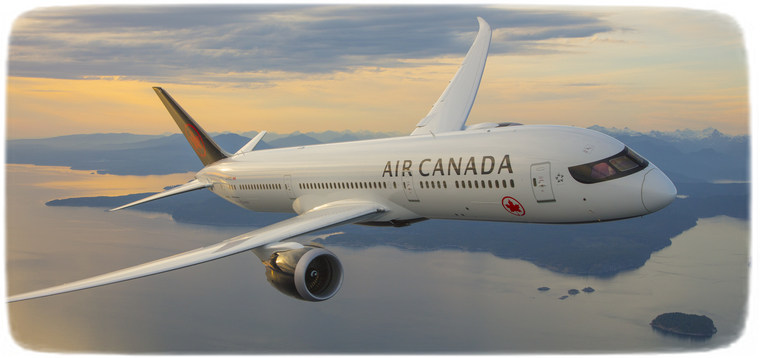 "With today's release of 2020 fourth quarter and full year results, we close the book on the bleakest year in the history of commercial aviation, after having reported several years of record results and record growth at Air Canada. The catastrophic impact of COVID-19 and government-imposed travel restrictions and quarantines has been felt across our entire network, deeply affecting all of our stakeholders. It has resulted in a 73% decline in passengers carried at Air Canada during the year and an operating loss of nearly $3.8 billion. Yet, despite a year-long onslaught of bad news, uncertainty and challenges posed by constantly changing requirements, our employees valiantly served our remaining customers professionally and transported them safely to their destinations, operated hundreds of repatriation flights and our Cargo team transported essential Personal Protective Equipment to Canada and around the world. I commend them for their courage as well as for their tireless efforts in these exceptionally trying circumstances to position our company well for when we emerge from the pandemic," said Calin Rovinescu, President and Chief Executive Officer of Air Canada. "As we move into 2021, while uncertainty remains as a result of the new variants of the virus and changing travel restrictions, the promise of new testing capabilities and vaccines is encouraging and presents some light at the end of the tunnel. As our success raising significant liquidity throughout 2020 indicates, investors and financial markets share our optimistic long-term outlook for our airline. I am also very encouraged by the constructive nature of discussions that we have had with the Government of Canada on sector-specific financial support over the last several weeks. While there is no assurance at this stage that we will arrive at a definitive agreement on sector support, I am more optimistic on this front for the first time. "Given these circumstances, we have made many painful decisions over the past year. These include reducing staff by more than 20,000, dismantling a global network ten years in the making, suspending service to many communities and aggressively cutting fixed costs. At the same time, we have bolstered our liquidity position through several debt and equity financings to allow for additional operational flexibility and to support the implementation of our COVID-19 Mitigation and Recovery Plan. We rationalized our fleet, accelerating the permanent removal of older, less efficient aircraft and restructured new aircraft orders so that we will have a more fuel-efficient and greener fleet that is right-sized for the post-COVID-19 recovery period. In addition, we completed essential customer-oriented initiatives, such as rolling out our new reservation system and delivering on a much-improved Aeroplan loyalty program that will be amongst the industry leaders. Our cargo team delivered stellar results in 2020 and showed that we can build a strong, dedicated cargo fleet going forward," said Mr. Rovinescu. "As we announced last Fall, I will be retiring as President and Chief Executive Officer effective February 15th and Michael Rousseau, our Deputy Chief Executive and Chief Financial Officer, who has worked very closely with me for the last 12 years, will assume the role. I have absolute confidence in Mike and the entire leadership team - and know that as a result of our strong culture and discipline, Air Canada has the strength, agility, and resources to overcome the current crisis and to keep adapting to remain a global leader in the post-pandemic world. I am extremely grateful to our customers for their trust and confidence, our employees and partners for their unwavering dedication and loyalty to our airline, and to our Board of Directors for their full support throughout my tenure," concluded Mr. Rovinescu. SINGAPORE AIRLINES, SCOOT AND SILKAIR OPERATE FIRST FLIGHTS WITH FULL SET OF VACCINATED PILOTS AND CABIN CREW 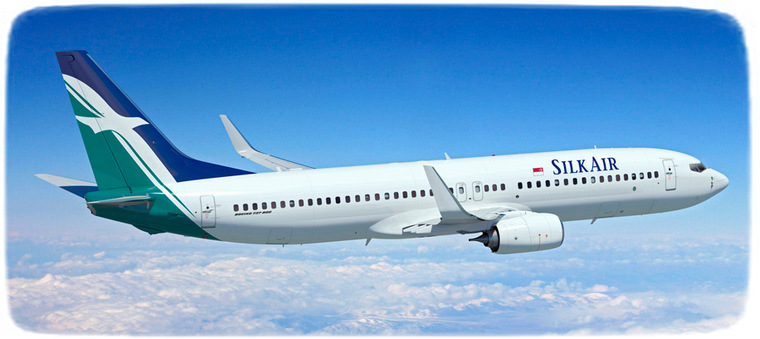 The first services with a full set of vaccinated crews were SIA flight SQ956, which recently departed Singapore for Jakarta, Indonesia, Scoot's TR606 which departed for Bangkok, Thailand and SilkAir's MI608 which departed for Phnom Penh, Cambodia. The Singapore government has prioritised the aviation sector in the country's vaccination exercise. This reflects the sector's importance, as well as the SIA Group's crucial role in Singapore's economic recovery and the fight against Covid-19. Operating crew within the SIA Group have responded very positively to the exercise, with more than 90% of cabin crew and pilots signing up for the vaccine to date. Mr Goh Choon Phong, Chief Executive Officer, Singapore Airlines, said, "We are very encouraged by the strong take-up rate for the vaccine from our colleagues. Vaccinations will be key to the reopening of borders and to enhancing travel confidence, in tandem with robust testing regimes and the wide-ranging safe management measures that are in place on the ground and in the air. They offer greater protection for our people and provide an added layer of assurance to our customers." MONTREAL INTERNATIONAL NOTICE TO PASSENGERS - NEW PROCEDURES FOR INTERNATIONAL TRAVEL 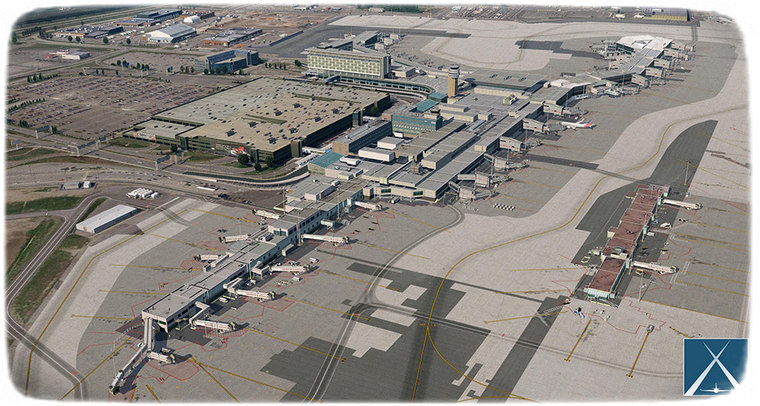 ADM Aéroports de Montréal therefore wishes to reiterate that measures and procedures that must be observed by any passenger deciding to leave or return to the country, although it is still recommended by both federal and provincial authorities to avoid non-essential travel outside the country until further notice. Many countries continue to impose strict travel restrictions. Be sure to check with your air carrier before going to the airport because security conditions can change rapidly. The Government of Canada's Travel and Tourism site also contains all the necessary information on entry and exit requirements for many countries. Many destinations require a medical certificate with a negative COVID-19 result to admit entry to their territory. It is now possible to take a rapid screening test (antigenic) at YUL, upon reservation. A temperature reading is taken at the three access doors of the terminal at YUL and at the security checkpoint. Wearing a mask is also mandatory at all times. Finally, please note that in order to limit traffic inside, only travellers and employees will be allowed to enter the terminal. Before boarding a plane to Canada, you will be required to use the ArriveCan application, through which you will need to provide your contact and travel information, your quarantine plan, and do a self-assessment of your COVID-19 symptoms. If you are not travelling with a smartphone, you have the option of submitting your information in advance by creating an online account. You must provide proof of a negative laboratory test result for COVID-19 taken within 72 hours of your scheduled departure time to the airline. You will need to keep proof of your test results for the 14-day period that begins on the day you enter Canada. Air carriers will deny boarding to travellers who fail to meet this requirement. On arrival to Canada and before leaving the airport, you will be required to take a COVID-19 molecular test. Screening test need to be booked in advance at www.biron.com/MTL. You will also be provided with instructions on how to obtain another test toward the end of your quarantine period. Following the arrival test, you will need to go to your reserved hotel for 3 nights to await test results. If you receive a negative result on your arrival test, you may be able to move to your place of quarantine. You must have a suitable plan for your quarantine. Failure to comply with the Emergency Order on Mandatory Isolation is an offence under the Quarantine Act and may result in a 6-month prison sentence and/or fines of up to $750,000. If you receive a positive result on your arrival test, you will be relocated to a designated quarantine facility for the remainder of your 14 days of isolation. DELTA CONNECTS MORE OF LATIN AMERICA TO U.S. WITH RETURN OF NEW YORK-JFK FLIGHTS TO SÃO PAULO  Delta will resume flights between John F. Kennedy International Airport in New York and Guarulhos International Airport in São Paulo beginning 12 Feb 2021. The route will operate four times per week with Boeing 767-400 aircraft featuring the latest Delta One, Delta Premium Select, Delta Comfort+ and Main Cabin service. Flights will depart from Terminal 4 at JFK and Terminal 3 in São Paulo, where Delta and its partners offer easy and convenient access to Delta Sky Clubs or partner lounges. The route also complements Delta's daily service between its Atlanta hub and São Paulo, providing significant connection opportunities through two of Delta's major hubs. "The return of Delta's service between New York and São Paulo reconnects these two great cities and provides customers with a safer travel experience and superior comfort on this important route," said Delta's Luciano Macagno - Managing Director of Latin America, the Caribbean and South Florida. "Delta's flights between these two important markets also serve to further connect the U.S. with more of Latin America and the Caribbean. With flights from the U.S. to 36 cities in the region, Delta is ensuring that those customers who need to travel can do so with ease and peace of mind, knowing that the safety of our customers and our employees is Delta's priority." Delta has added more than 100 layers of protection through its Delta CareStandard, and has extended middle seat blocking through April 30, 2021 - the only U.S. airline to do so. To make the travel planning experience easier, Delta has created an interactive travel map to help customers understand where Delta flies and the latest travel requirements or restrictions at their destination, including more information on the U.S. Centres for Disease Control requirement that customers entering or transiting the U.S. present a negative COVID-19 test result. Even as Delta has doubled down on its investment in safety and cleanliness, it also continues to invest in offering a superior customer experience and award-winning hospitality, including refreshing more than 300 new in-flight entertainment options and recently announced plans to bring high-speed Wi-Fi on board this year. 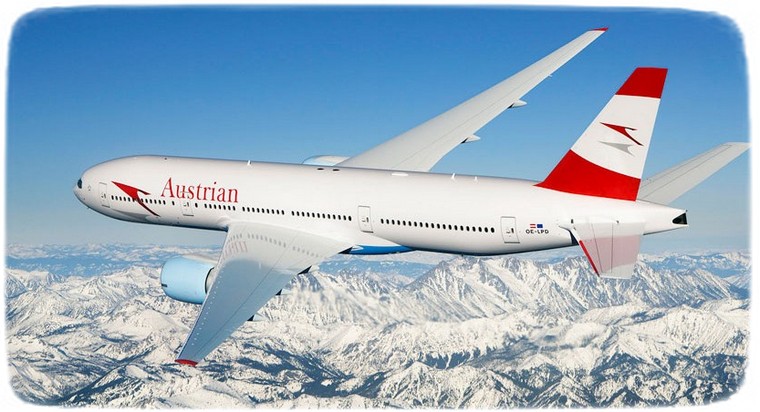 At the end of August 2020, Austrian Airlines changed its ticket tariff fare structure to give passengers more flexibility in their travel planning. Since then, the rebooking fee has been suspended for all fares. This fare offer has been extended again and is now valid until the end of May 2021. For all flight tickets booked and issued up to May 31, 2021, the rebooking fee is waived, regardless of the fare booked. Until the end of May, passengers can rebook as many times as they wish and need without a rebooking fee. Afterwards one further rebooking is possible free of charge. The regulation applies to new bookings worldwide on short, medium and long-haul flights. If the original booking class is no longer available, for example due to a change in date or destination, additional costs may apply. Also, tickets issued up to and including August 31, 2020, can now be rebooked until May 31, 2021. On the Austrian Airlines website, passengers will find information on travel in times of corona, mandatory wearing of masks, country-specific travel regulations or flexible rebooking arrangements. The information is updated on an ongoing basis.  Iberia is part of the consortium which includes the national airports authority AENA, Inetum, and Thales, which is to carry out an R+D project with the aim of seeking new ways to operate in the air travel industry with the new health measures imposed since the Covid-19 outbreak. The proposed project allows the biometric detection of passengers thanks to the use of tablet-type mobile equipment, which will improve their airport experience by streamlining the entire process and elimination all physical contact, enhancing still further the safety of all airport procedures. The use of such mobile equipment also incorporates the concept of mobility, meaning that a limited number of units will be sufficient to deal with a large number of flights to different destinations. In addition, the system boasts improved detection capabilities, making it possible to identify passengers even when they are wearing face masks. The initiative is being supported by the CDTI, Spain's industrial technology development agency, through a research and development cooperation programme, thus contributing to the improvement of the technological level and the digitisation of Spanish enterprises via the development of innovative ideas. For this R+D programme, in compliance wither the new measures of contactless security, the facial recognition programme deployed at the Adolfo Suarez Madrid-Barajas Airport, now in the pilot project stage, will serve in the development of new functionalities, integrating them into a single listing process by means of a dedicated application and security and boarding controls. With this aim, leading companies in their respective industries have joined to achieve the necessary development and validation Iberia, as and airline, Inetum, as a systems integration company, Thales, as a provider of biometric technologies and identity validation processes, and AENA, as operator of Spanish airports, with responsibility for the intermediate integration systems between airline and biometric engine.  Scandinavian Airlines (SAS) has selected CFM International LEAP-1A engines to power 35 additional A320neo family aircraft. The order, which includes eight spare engines and a Rate Per Flight Hour (RPFH) support agreement, is valued at $2.9 billion U.S. at list price. The aircraft order had been announced in April 2018. RPFH agreements are part of CFM's portfolio of flexible aftermarket support offerings. Throughout the term of the agreement, CFM will guarantee maintenance costs for the airlines 160 LEAP-1A engines on a dollar per engine flight hour basis. SAS currently operates 44 A320neo aircraft and one A321neo LR powered by the fuel-efficient LEAP engine and plans to introduce two additional A321neo LR as part of its strategy to develop international routes, including to the U.S. "The new LEAP engines and long-term services agreement are an integral part of SAS' strategic fleet upgrade and will continue to greatly improve the efficiency in our operations. Our goal is to be industry leaders in sustainable aviation and we are to reduce emissions by 25 percent by 2025, in comparison to 2005. This will mainly be enabled by using state of the art technologies allowing for lower fuel consumption and an increase in the use of sustainable aviation fuels," said Magnus Örnberg, Executive Vice President and CFO, SAS. This order is part of the airline's fleet upgrade programme that aims to improve efficiency and sustainability performance. As a major European airline, SAS has been at the forefront of introducing technologies that reduce the impact of aviation on the environment, as well as choosing efficient engines to power its fleet. In October 2020, the delivery flight for SAS' first LEAP-powered Airbus A321LR used a 10 percent sustainable jet fuel blend. The initiative is part of SAS' commitment to reducing its carbon footprint. "We are delighted to expand our long-term relationship with SAS, an airline with which we share the same core values," said Gaël Meheust, president and CEO of CFM International. "Over four decades, CFM has developed leading-edge technologies that help our airline's customers make their operations both cost-efficient and sustainable. We take SAS' trust as a great responsibility to keep supporting their operations with the high-level CFM standards in terms of reliability and utilisation." CFM's advanced LEAP-1A engine continues to set new industry standards for fuel efficiency and asset utilisation, logging more than nine million engine flight hours in commercial operation. The fleet is providing 15 percent better fuel consumption and lower CO2 emissions, as well as a significant improvement in noise compared to the best CFM56 engines. 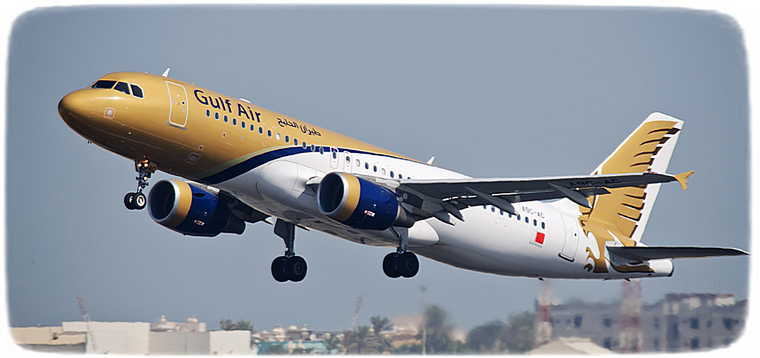 Etihad Airways, the national airline of the United Arab Emirates, and Gulf Air, the national carrier of the Kingdom of Bahrain, have signed a Strategic Commercial Cooperation Agreement (SCCA) to deepen their partnership between Abu Dhabi and Bahrain and beyond the respective hubs. The wide-ranging SCCA, subject to obtaining applicable governmental and regulatory approvals, sets out specific actions for deepening and broadening commercial cooperation, building on the Memorandum of Understanding (MOU) the airlines signed in 2018. The SCCA envisages a phased approach to closer collaboration between the partners. In the first phase, by June 2021, the scope of the partners' codeshare agreement, first signed in 2019, will be significantly expanded. Etihad and Gulf Air will be able to offer up to an additional 30 combined destinations beyond the Abu Dhabi and Bahrain hubs, across the Middle East, Africa, Europe and Asia. The partners will work together to optimise joint operations on the Abu Dhabi-Bahrain route, with improvements to network connectivity over each of the partners' hubs. The partners will also enhance their respective offerings to premium tier customers of Etihad Guest and Falconflyer, including reciprocal lounge access at the hubs and enhanced recognition through a guest's journey, regardless of the operating airline. Additionally, the partners will work together to improve the customer journey on Abu Dhabi -Bahrain, making it more seamless, regardless of the operating carrier, with enhanced and harmonised policies and products in areas such as baggage and ancillaries. The 2018 MOU also provided for exploration of MRO, pilot and crew training, and cargo opportunities, which the parties will now re-visit in light of current market opportunities and company requirements. The Strategic Commercial Cooperation Agreement was signed by Tony Douglas, Group Chief Executive Officer, Etihad Aviation Group, and Captain Waleed AlAlawi, Gulf Air's Acting Chief Executive Officer. Tony Douglas said: "This agreement reinforces the strength of the ongoing partnership between our two airlines. We look forward to exploring pragmatic ways in which the two carriers can increasingly work seamlessly between our two capitals, enhance benefits and customer experience for our most frequent travellers and further extend the reach of our joint networks beyond our hubs." Captain AlAlawi said: "Our relationship with Etihad Airways has always been strong and today we are reaching a higher level of collaboration with many more opportunities in the horizon between the national carriers of the Kingdom of Bahrain and the United Arab Emirates. This agreement will empower both of us to offer a more elevated experience to passengers and widen their travel options." www.youtube.com/channel/UCCuRVZAGodT6sztTeXBGeMw and subscribe to our YouTube channel  |
                        |
 |
 |

Copyright © Pilot's Post PTY Ltd
The information, views and opinions by the authors contributing to Pilot's Post are not necessarily those of the editor or other writers at Pilot's Post.